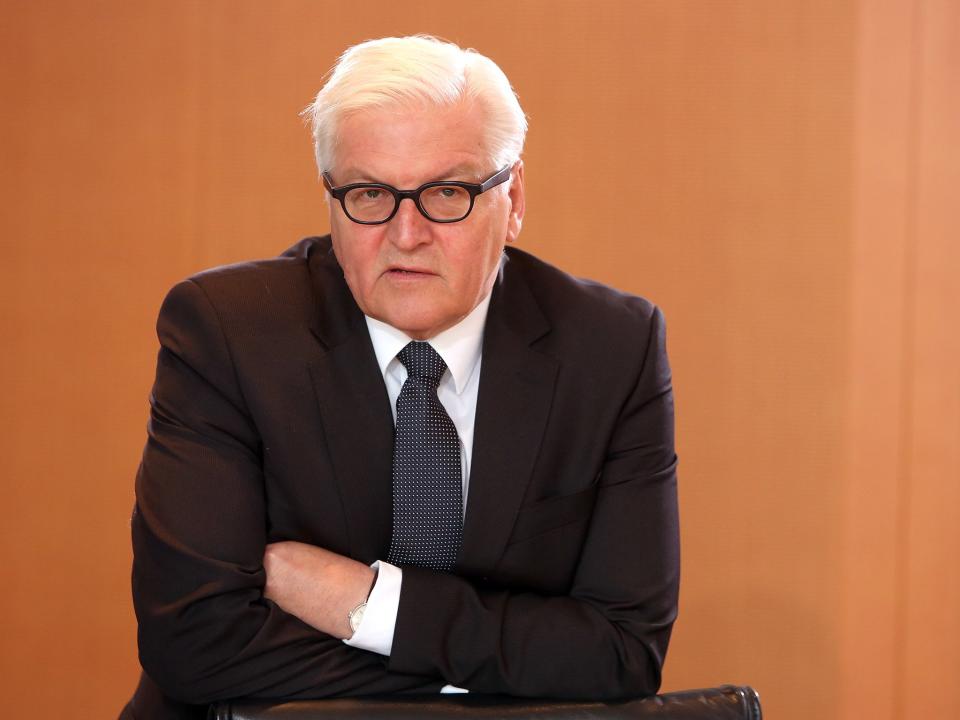If you're outraged about the German president coming to the Cenotaph on Remembrance Day, you don't know your history

We are barely out of the summer but already the first rumblings of Remembrance Sunday indignation have sprung forth. A photographed No10 memo from Theresa May’s top military adviser suggests that the Queen has invited the German president, Frank-Walter Steinmeier, to stand alongside her at the Cenotaph in November, so the two heads of state might come together to quietly reflect on a horrendous war which ended a century ago.
It is a welcome gesture, a significant and meaningful act of reconciliation and a moment to draw a line under a conflict that visited misery upon a generation.
The Queen’s own father served as a naval officer at the Battle of Jutland, so Her Majesty is well aware of the sacrifices that her parents’ generation made. The Queen herself grew up in the immediate aftermath of that war and witnessed the devastation of its sequel. It is entirely fitting that she should extend this invitation to Germany’s head of state – particularly now that Germany is such a close friend and ally.
But what price dignity and sombre reflection when there is the potential for indignation from people who were not there?
According to the memo, some aides are concerned that there may be public outrage that a senior German politician has been invited to this event. Former soldier-turned-commentator Richard Kemp told The Sun that “one offended veteran is one too many on this hallowed day.”
It is not clear as to which veterans Colonel Kemp is alluding to, for the old Tommys of the Great War are sadly gone – but we do know the feelings of the last surviving soldier of that conflict, Harry Patch, who died in 2009. When he was 106, Harry met one of the last living German combatants and the two men spent a quiet day together at Ypres. After the encounter, Harry said: “I was a bit doubtful before meeting a German soldier. Herr Kuentz is a very nice gentleman however. He is all for a united Europe and peace – and so am I.” Harry and Mr Kuentz had both seen the brutal extermination of their pals in the fog of war and, like many of that generation, neither wanted it to ever happen again.
The hope in the immediate aftermath of the First World War was that it had been “the war to end all wars” – but of course that was not to be the case. Another followed, and it was only after that, that the European combatants on all sides strove for reconciliation and a proper, lasting peace.
Over 70 years have passed since the end of the Second World War. And yet, on these shores at least, a seemingly never-ending enmity towards our former enemy continues in some quarters – and most of it from people who were not there.
Rarely a day goes by without some right-wing commentator, politician or Brexiteer invoking the sacrifice of one or other of the wars and treating our departure from the EU as but the latest round in an on-going skirmish. It is those rumblings no doubt that concern the government and put question marks around the invitation of the German president on Remembrance Day.
What is too often lost in the mists of outrage and appropriation of those ghostly rows of white graves, is that the price paid in both conflicts was for the long and unprecedented peace that followed.
I hope that Mr Steinmeier will be welcomed this November. I hope that we will all join him and our Queen in bowing our heads in the silent remembrance of what was lost on all sides – and after that, I hope very sincerely indeed that we can draw a dignified line and move on.

 Yahoo News
Yahoo News 